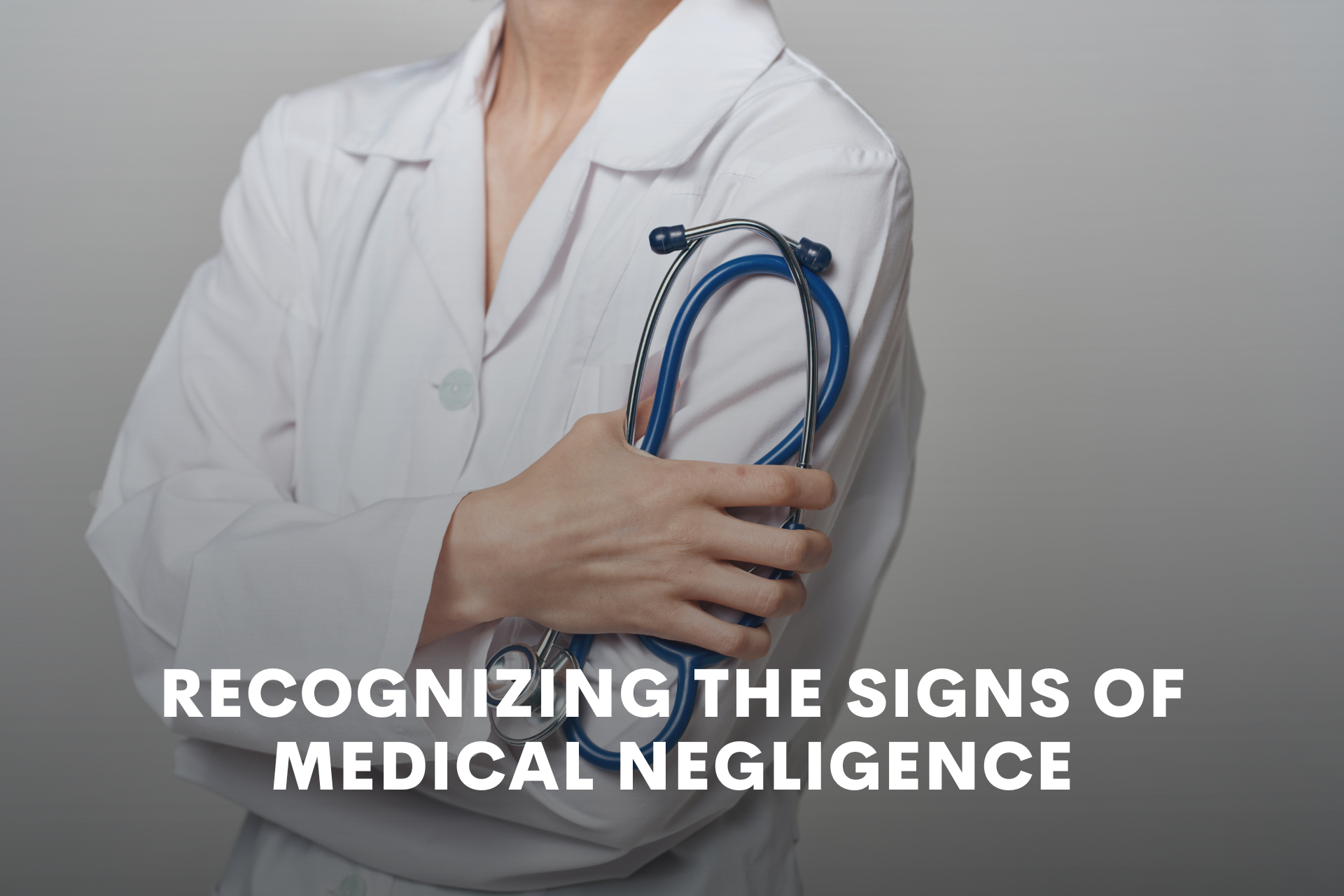Medical negligence can have potentially devastating consequences for patients and their loved ones.
When medical professionals fail to meet their standard of care, patients may suffer from injuries or, in the worst cases, death.
While there are standards and rules to safeguard patients from medical negligence, it still occurs, and you can take additional steps as a patient to protect yourself from it.
It starts by understanding the signs, and in this blog post, we share the most common and what you can do to protect yourself and your loved ones if you believe you have a case for medical negligence.
Signs of Medical Negligence
Failure to Diagnose or Misdiagnosis
This is the most common form of medical negligence. When a healthcare provider fails to diagnose a patient’s condition properly, it can lead to delayed treatment, unnecessary suffering, and death in some cases.
If you feel your doctor isn’t giving you the proper care you deserve, paying attention to your concerns, or dismissing them, it can be a sign of medical negligence.
Surgical Errors
Every surgical procedure carries its share of risks. However, when a mistake results from negligence, the consequences can be disastrous.
Some examples of surgical errors include but aren’t limited to:
- Operating on the wrong body part
- Leaving a surgical instrument inside the patient
- Causing tissue damage in surrounding areas of the surgery site
If you experience complications after surgery or suspect your surgeon made a mistake during the procedure, don’t hesitate to get a second opinion from a medical professional and consult one of our medical malpractice attorneys here at Cappy Law.
Medication Errors
Receiving the wrong medication, taking the incorrect dose, or not considering how drugs interact with others can pose serious harm to the patient.
If you experience adverse effects from your prescribed medication or feel as if something isn’t right with your prescriptions, don’t hesitate to bring it to the attention of your healthcare provider.
Informed Consent
As a patient, you can (and should) make decisions about your medical care. This includes understanding fully the risks and benefits associated with your medical professional’s proposed mode of treatment.
Medical negligence comes into play when your provider fails to inform you of potential risks and alternative treatment options. If you feel your provider hasn’t provided enough or all the information you need to make an informed decision, you could have the framework for a medical negligence case.
Inadequate Follow-Up Care
The follow-up care you receive is just as critical as the treatment. Follow-up care is when your provider monitors your progress, mitigates complications, and adjusts your treatment to ensure the best possible outcomes.
That’s the ideal scenario. However, when it comes to medical negligence, healthcare providers fail to follow these steps to ensure their patients receive the best follow-up care. They may also dismiss concerns or neglect follow-up appointments.
As a patient, you must advocate for yourself and seek alternate opinions if your provider isn’t giving you the care you need and deserve.
Understanding and recognizing these signs of medical negligence is the first step towards seeking the justice and compensation you deserve.
If you believe that your or a loved one is a victim of medical negligence, you must seek the support of a medical malpractice attorney.
Contact us today if you have questions and to schedule your free case evaluation.








